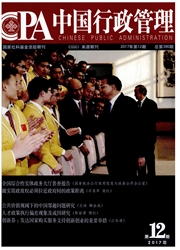

 中文摘要:
中文摘要:
随着商品房小区的急速扩展,由物业纠纷及房屋质量问题引发的业主维权活动愈演愈烈,逐渐演变为一种席卷全国的抗争运动。通过对全国9大城市的问卷调查表明,城市社区的物业纠纷问题具有普遍性,业主同市场组织的冲突最严重且易激化;业主维权冲突虽然总体温和可控,但是具有从“社区冲突”升级为“街头冲突”的可能;业主维权处于个体为主、松散联合为辅的阶段。究其原因,业主维权冲突是城市化进程中“公民权利需求”与制度供给不足之间的产物,是住房市场上游问题下游化的结果。未来,伴随人口结构老龄化、少于化和公民权利意识觉醒等因素,社区维权冲突升级的可能性会有所增强。要预防业主维权冲突升级扩大,主要是解决业主权利维护的制度问题,应当在对住房市场动态预警的基础上,调整法律法规,促使业主与市场主体“权益平衡”,发挥业主同市场主体的协商作用。
 英文摘要:
英文摘要:
With the rapid expansion of commercial residential buildings, the rights protection of property caused by proper- ty disputes and housing quality problems, has been intensifying, and swepting? across? the? whole? country. A questionaire research in 9 cities in China indicates that property disputes are universal in urban communities and conflicts between homeowners and market organizations are most serious and can be easily intensified. Al- though rights conflicts of homeowners are mild and overall controllable, they are possible to turn from "commu- nity conflicts" to " street conflicts" , and the homeowners'rights - defending action is mainly by individuals and loosely coupled by phase. Rights conflicts of homeowners are the results of the gap between the " demands of civil rights" and the institution supply, and, they are also the results of the upstream problem in the housing market. In future, along with aging population, low birth rates , civil rights consciousness and other factors, the possibility of the community conflicts of rights protection will be enhanced. To prevent homeowners'rights - based conflicts into larger ones, it needs to adjust laws and regulations on the basis of the housing market dy- namics warning, to promote "the interests of balance" between homeowners and market players, and push de- liberative democracy between homeowners and other stakeholders.
 同期刊论文项目
同期刊论文项目
 同项目期刊论文
同项目期刊论文
 期刊信息
期刊信息
